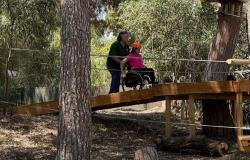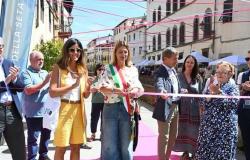For six years I have been spending my summer holidays in a well-known location in the Pusteria Valley (home of Jannik Sinner). There I met Italians who think they know just enough about Alto Adige, while they know little about it and, perhaps, have always understood little about it. They come here when they have to go to Innsbruck or Germany, they come here in the winter to ski or in the summer for a walk in the mountains, in an environment that seems made especially for resting the body and hygiene of the mind. They admire the order, the cleanliness, the efficiency of the healthcare and hotel services; and to many of them it seems impossible that such peaceful landscapes were the scene of dramatic conflicts, which revealed to Europe the existence of a South Tyrolean question.
His date of birth is 10 September 1919, when the victorious powers of the First World War signed the treaty in Saint-Germaine-en-Laye which established the division of the dissolved Austro-Hungarian empire, including the annexation of Trento and Bolzano to our country. Just three years later the “twenty years of madness” begins. On 2 October 1922, some trucks of “black shirts” arrived in Bolzano and began to teach Dante’s language to the “alloglotti” as they were called by the fascists) with truncheons and castor oil. It is the first chapter of a forced Italianization dotted with painful divisions.
When the Südtiroler Volkspartei (SVP) entered the scene in May 1945, the neo-party claimed the Tyroleans’ right to self-determination and sided with Austria in the request for a popular referendum to be able to exercise it. By now there were Italians, in South Tyrol/Alto Adige; and there was that invisible character, hatred, capable of filling the valleys and climbing the Dolomites.
The 1950s were the years of the autonomist offensive of Silvius Magnago’s SVP, under the slogan “Los von Trient” (Away from Trento). They were the years of the “season of bombs”, followed in the mid-1960s by the “season of machine guns” in which financial police, carabinieri, and military personnel lost their lives. After many efforts lasting a decade, the new Statute of Autonomy came into force on 20 January 1972. But only in 1976 were the implementing regulations issued on two crucial issues: ethnic proportionality in public employment and bilingualism. When the two key regulations of the Statute of Autonomy were rigorously applied, our fellow countrymen felt the ground crumbling under their feet.
The South Tyroleans had trade, agriculture and tourism. Italians had public employment before the ethnic proportional system took it away from them, and work in factories before the factories began to close due to the economic crisis. They believed that those jobs were not a privilege, but were owed. Nor had they ever wondered why the South Tyroleans spoke Italian while none of them, or almost none, spoke German. Only in 1992 will the thirty-year diplomatic dispute with Austria, which Bruno Kreysky had even brought to the UN benches, come to an end. With a “liberating declaration”, the government of Vienna accepted the measures approved by the Andreotti ministry for the protection of the people of South Tyrol. After gaining autonomy, the province of Bolzano had three presidents. The first, Silvius Magnago (1914-2010), was the father. His personal history coincides with the history of South Tyrol. Like many other young people of his generation, in 1939 he chose Hitler’s Germany. Wounded on the Russian front, he lost a leg. After the war he was a tenacious supporter of the separation from Trento.
He was literally obsessed with the idea that fifty-six million Italians could assimilate and absorb five hundred thousand South Tyroleans. The second president, Luis Durnwalder (born 1941), belonged to the generation most open to the reasons for dialogue. The third, Arno Kompatscher (born 1971), took office in January 2014. When the Vienna Parliament approved the granting of Austrian citizenship to German-speaking South Tyroleans in 2019, he was quick to point out that that vote did not imply plans for secession , but it was only the symbolic expression of a “sentimental relationship” with what was once the motherland. Will it be true? The future, the ancients said, is in the womb of Jupiter.





